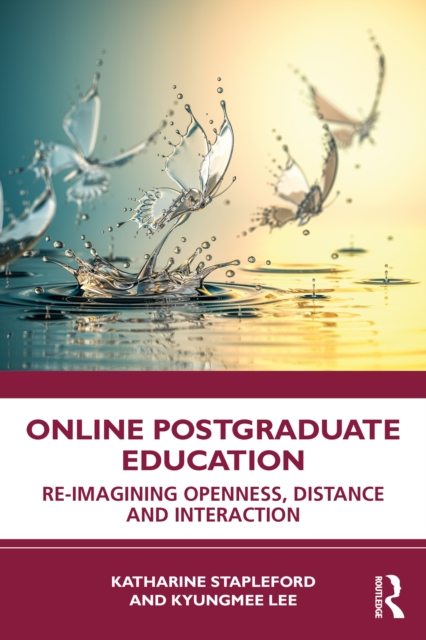
Online Postgraduate Education : Re-imagining Openness, Distance and Interaction PDF
by Katharine Stapleford, Kyungmee Lee
Description
Providing a comprehensive examination of the nature of online higher education, this book proposes effective ways in which it can be conceptualised and designed to be more accessible and authentic for adult learners.
Against the backdrop of differing historical origins, which have resulted in multiple, misaligned understandings, applications and interpretations of online and distance education, this book presents an empirical research study which uses a narrative approach to explore the lived experiences of online postgraduate students. It positions two arguments on the (in-)accessibility and (in-)authenticity of online education side by side, effectively demonstrating how they can be conflict and contradict each other. Using narrative data, the authors re-examine the concepts of distance and interaction in order to present a new understanding of the concept of openness relevant to the for-profit postgraduate distance learning sector. This book illuminates the postgraduate distance education experience and presents a set of alternative theoretically informed conceptions which the authors present as three essential pillars of online postgraduate education: openness, distance, and interaction.
Carefully presented and supported using real online higher education scenarios, the book will enable higher educators, practising online education in a range of pedagogical contexts, to re-imagine their practices; further, to create more accessible and authentic learning opportunities for their learners.
Information
-
Download - Immediately Available
- Format:PDF
- Pages:142 pages
- Publisher:Taylor & Francis
- Publication Date:29/01/2024
- Category:
- ISBN:9781003835196
Other Formats
- Hardback from £130.00
- Paperback / softback from £35.99
- EPUB from £29.15
Information
-
Download - Immediately Available
- Format:PDF
- Pages:142 pages
- Publisher:Taylor & Francis
- Publication Date:29/01/2024
- Category:
- ISBN:9781003835196






